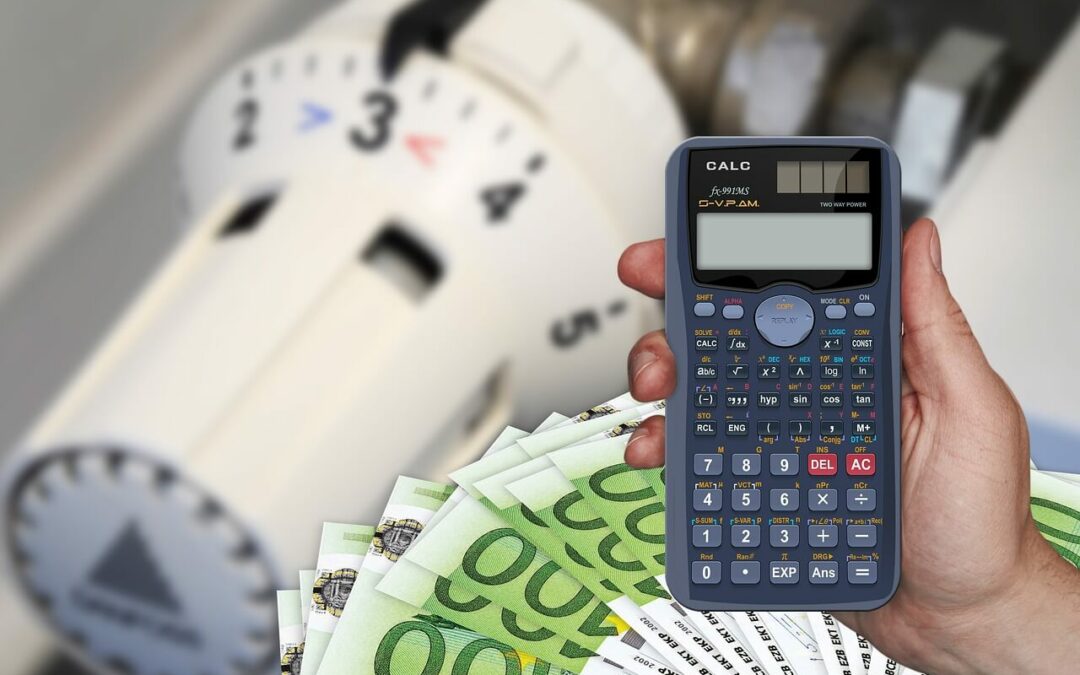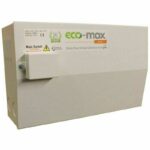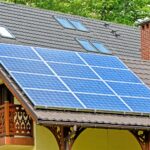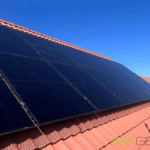Energy bills are one of the main sources of financial stress for many households in the UK, especially after the energy crisis that started in late 2021. The global demand for energy surged after the Covid-19 pandemic, while the supply was disrupted by Russia’s military intervention in Ukraine. Here at NXTGEN Energy we are committed to helping you save energy at home.
Although the wholesale prices of gas and electricity have fallen from their record highs in July 2022, they are still much higher than they were before the crisis. The Ofgem energy price cap, which limits how much suppliers can charge customers on default tariffs, will drop to £1,923 a year for a typical household from October 2023. This is a reduction of £151 from the previous level of £2,074, but still an increase of £1,056 from the pre-crisis level of £867.
The government has also withdrawn the £400 energy bill support scheme that was introduced in winter 2022 to 2023 to help households cope with the rising costs. This scheme ended in March 2023 and was not extended or replaced by another universal grant. However, some low-income households may be eligible for other forms of support, such as the Boiler Upgrade Scheme, the Home Upgrade Grant (HUG2), or the Energy Company Obligation (ECO4) scheme.
With inflation and interest rates soaring, putting pressure on wages and living standards, many people are facing a tough winter ahead. To save money on energy bills, NXTGEN Energy has put together this quick guide to 10 Ways to save energy at home in 2023.
Quick win energy bill savings
1. Learn how to read your energy meters
You can avoid paying too much and even save some money by knowing how to read your electricity and/or gas meters and what kind they are. For instance, if you have an E7 or E10 meter that charges you differently for day and night usage, you can lower your bills by using your appliances when the energy demand is low, or ‘off peak’.
It’s also good to know how to read your meters when the Ofgem energy price cap changes. The energy unit prices will drop from 1 October 2023, so if you give your supplier an accurate meter reading just before that date (like on 30 September 2023), you will make sure you get the lower rate right away. Otherwise, the provider may charge you more than they should, based on their estimate of your usage – unless you have a smart meter.
Another thing to keep in mind is that the National Grid will offer consumers some financial rewards for shifting their energy consumption away from peak times this winter. This is called the Demand Flexibility Service and it started last year when there was a risk of gas shortage in the UK.
2. Turn off your electrical devices
You may have heard this tip before, but it’s worth remembering. The Energy Saving Trust – an independent organisation that helps people save energy and use it more sustainably – says that you could save £60 a year by switching off devices like TVs and games consoles completely instead of leaving them on standby mode which still draws power.
3. Don’t overfill your kettle
We love our tea in the UK. But did you know that most of us are wasting energy by boiling too much water in our kettles? The UK Tea and Infusions Association (UKTIA) found out that 80% of us are doing this. You can save £12 a year by filling your kettle with only the water you need (or using a teapot instead).
4. Watch your shower time
You can also save money by taking shorter showers. The Energy Saving Trust suggests that you limit your shower time to four minutes – the same as a long pop song. This way, you can save £75 a year. If you have a gym membership, you can make the most of this saving by showering there after your exercise or swim.
5. Keep tabs on your appliances
Some appliances use a lot of energy, especially the ones that use water like dishwashers and washing machines. You can save some money by washing your clothes at 30-degrees and doing one less wash per week. The Energy Saving Trust says this can save you £28 a year. You can also save £60 a year by skipping the tumble dryer. And if you have a dishwasher, wait until it’s full before you run it. This can save you about £15 a year.
6. Get draught proofing
You can save money by stopping cold air from coming in through your windows and doors. This way, you won’t need to turn on your heating as much.
The Energy Saving Trust says that if you get a professional to draught proof your windows and doors in a typical three-bed semi-detached home, you can save £125 a year on your energy bill. But it might cost you more than £223 to get it done – so it might take you less than two years to break even.
If you’re good at DIY, you can buy draught excluders for only £3 online and do it yourself. This can save you £215 in five years. But if you get a professional to do it, you will save more money in the long run – even though it costs more upfront.
If you have a chimney, you can also get a special draught excluder for it. These cost £20 and they inflate inside the chimney. They can save you £90 a year on your energy bill.
7. Get to know your boiler settings
You can save more than £300 a year by making two simple changes to your boiler, according to heating experts. Heating Hub – an energy efficiency advisory firm – says that lowering your flow temperature can help you save money.
This setting controls how hot the water is when it leaves your boiler and goes to your radiators. It doesn’t affect the temperature of your home, but it changes how fast it heats up.
Heating Hub says that most condensing combi boilers in the UK are still on their factory setting – around 80C – which means they are not working as efficiently as they could. If you see steam coming out of the pipe outside your home, it means that your flow temperature is too high. By reducing this heat setting, your boiler can reuse more heat instead of losing it outside through the pipe.
Another thing you can do with your boiler is to switch off its pre-heat function. This function keeps a small amount of water hot in case you need hot water right away. But turning it off means that you will use less gas, even though it will take longer for the water to warm up for your shower or washing up. Heating Hub estimates that this can cut your gas usage by 5% to 10%.
8. Insulate your hot water pipes
A simple and low-cost way to save some money is to put foam insulation around any hot water pipes that are exposed in your house. This could cost you £15 for some tubes from a DIY store, but you could save £9 every year, so it would be worth it in the long run.
Another similar idea is to wrap your hot water cylinder in a jacket. It should already have 25mm of insulation, but if you add another 55mm for £16, you could save £70 a year.
Medium-to-long term energy bill savings
These energy saving tips will all require professional work and so you will not make an instant saving on your energy bills. Instead, you will be likely to see positive results in your energy bills over a longer-term period.
9. Invest in insulation
Insulating your home well can help you keep it warm in cold months, and reduce the need to turn up the thermostat. One kind of insulation that the Energy Saving Trust suggests is cavity wall insulation.
The organisation says that a third of the heat that escapes from an uninsulated home goes through the walls. You can fill the cavity in your wall – which most houses have – with insulation that will stop this heat loss. It might cost you around £1,000, but you could save £395 per year.
If you live in a flat, you will need to get permission from your neighbours or the landlord. But since most flats only have one or two outside walls, the ratio of cost to annual savings might be even better.
Another good way to save energy is loft insulation. The Energy Saving Trust says that a quarter of the heat from an uninsulated home is lost through the roof.
Putting at least 270mm of insulation in your loft will lower this heat loss. But don’t expect a big saving right away. For a standard three-bed semi-detached house, it will cost about £465 but will only save you £25 per year.
If you have a four-bed detached house, the cost could be £1,100 and will only save you an average of £40 per year. And if you live in a flat that is not on the top floor, or has a flat roof with no loft above it, you will have to depend on those above and below you to keep the heat in.
There is a government grant scheme for getting insulation done. To find out if you qualify, you should read our guide on Solar Panel Grants 2023/2024.
10. Solar panels
Using less fossil fuels can help you avoid the kind of price shocks that are happening on global energy markets right now. But things like solar panels need a lot of money to buy and install, so many people might not be able to afford them.
If you can do it, the Energy Saving Trust says a typical solar panel installation will cost you £6,500. But it will also save you a lot of money – £505 in London, £475 in Manchester and £450 in Stirling, according to the Energy Saving Trust.
You could also put a wind turbine on your home, or switch your heating system from a gas boiler to something more efficient. But these kinds of projects can be very expensive too, as your home might need some changes to fit them in.
Conclusion
Saving electricity at home is not only good for the environment, but also for your wallet. By following these 10 ways to save household electricity, you can lower your energy bills, increase your property value, and improve your quality of life.
Are you ready to invest in Solar Panels and convert to renewable energy?
If you are a UK homeowner and interested in learning more about the different types of Solar PV systems, contact our expert team today. By filling out our contact form, our team will provide you with a free no-obligation quote to install a bespoke solar PV system, catered to your energy needs. Call us on 01268 928 690 or click the ‘Enquire Now’ button below to claim your free no-obligation quote and solar panel system design.
Frequently Asked Questions about Solar Panels
The short answer is yes. Solar panels can cut 70% off your energy bills, and that proportion is growing as gas bills rise. No wonder installations have risen by 45% in the last three years, and shot up by 80% in the last year alone. But solar panels are an investment.
1-2 bedroom property, 8 solar panels generating about 2,100 kWh a year.
3 bedroom property, 12 solar panels generating about 3,100 kWh a year.
4-5 bedroom property, 16 solar panels generating about 4,200 kWh a year.
The answer depends on how much you pay for the solar panels, how much your electricity would otherwise cost, how much green energy the panels make from the sunshine you get, and whether you have a battery installed or not. The average payback period for solar PV is coming down and can be about 10 to 20 years depending on your system.
The industry standard for most solar panels’ lifespans is 25 to 30 years. Most reputable manufacturers offer production warranties for 25 years or more. The average break even point for solar panel energy savings occurs six to 10 years after installation.
Whilst there is no hard and fast rule as to how much value solar panels can add to the overall value of your property, suggestions range from 4% to 14% on average and they are certainly unlikely to detract from the value of your home, even if they aren’t the most attractive feature visually.
Latest Saving Energy Posts
- Is it worth buying solar panels in Kent?Imagine this: you go to switch on the kettle and a surge of guilt hits you as you remember the ever-increasing electricity bill. Sound familiar? Well, what if there was a way to harness the power of the sun and slash your energy costs? Kent, with its decent sunshine hours, might be the perfect place… Read more: Is it worth buying solar panels in Kent?
- Solar Panels and EPC RatingsSolar panels have become increasingly popular as a sustainable energy solution, offering numerous benefits for both residential and commercial properties. In parallel, Energy Performance Certificate (EPC) ratings serve as indicators of a building’s energy efficiency. Understanding how solar panels can impact EPC ratings is crucial for maximizing energy savings and environmental benefits. This blog post… Read more: Solar Panels and EPC Ratings
- Voltage Optimisers, What Are They and How Do They Work?What is voltage optimisation? A voltage optimiser is a smart device that can help you save energy and reduce your carbon footprint. It works by adjusting the power supply from the National Grid to the ideal level for your electrical devices and appliances at home or work. This way, you can use less electricity and… Read more: Voltage Optimisers, What Are They and How Do They Work?
- Best SEG Tariffs/SEG Rates in March 2024In March 2024, the best SEG tariffs and SEG rates are those that offer competitive prices for electricity while also prioritizing sustainable energy sources. These SEG tariffs typically include discounts or benefits for members of specific energy suppliers. By participating in the Smart Export Guarantee (SEG) scheme, consumers can not only save money on their… Read more: Best SEG Tariffs/SEG Rates in March 2024
- The ECO Flex SchemeIf you do not meet the criteria for the ECO4 scheme, there is still a possibility for you to receive funding through the Local Authority and Supplier Flex (ECO Flex) mechanism. ECO Flex enables local authorities, the Scottish and Welsh governments, and energy suppliers to refer households for ECO4, even if they do not fully… Read more: The ECO Flex Scheme
- What are Carbon Credits and how do you get them in the UK?Carbon credits have emerged as a vital tool in the global fight against climate change. As the world faces the urgent need to reduce greenhouse gas emissions, countries and individuals are seeking innovative ways to mitigate their carbon footprint. Carbon credits provide a mechanism for measuring, reducing, and offsetting carbon emissions in a structured and… Read more: What are Carbon Credits and how do you get them in the UK?
- How Solar Panels Can Put More Pennies in Your Pocket this 2024Remember that crisp fiver you found tucked into an old coat pocket – a delightful surprise, like sunshine on a gloomy Thursday. Now, imagine finding that feeling every month on your bank statement, thanks to the quiet whirring of little heroes on your roof: solar panels. In a world where bills inflate faster than a… Read more: How Solar Panels Can Put More Pennies in Your Pocket this 2024
- Reduce Your Energy Bills With Solar PowerImagine this: you open your latest energy bill, brace yourself for another gut punch, and instead…a pleasant surprise. A number so low, it feels like a typo. A number that translates to groceries in the fridge, a night out without guilt, a little breathing room in your ever-tightening budget. Sounds like a fantasy, right? Not… Read more: Reduce Your Energy Bills With Solar Power
- Reasons Why Solar Energy is the Ultimate Homeowner’s InvestmentIn recent years, solar energy has emerged as a game-changer in the world of residential power generation. As concerns about the environment and rising utility costs continue to grow, homeowners are increasingly turning to solar energy as a sustainable and financially savvy solution. This article aims to explore the reasons why solar energy is the… Read more: Reasons Why Solar Energy is the Ultimate Homeowner’s Investment
- Why 2024 is the Year to Switch to Solar Power for Your Care HomeThe global shift towards renewable energy has never been more urgent, and care homes are no exception to this trend. In recent years, solar power has emerged as a viable and sustainable solution for meeting the energy needs of care homes while reducing costs and environmental impact. Now it’s 2024, there is a compelling case… Read more: Why 2024 is the Year to Switch to Solar Power for Your Care Home
- How to Go Green with Solar Panels: A Guide for Smart HomeownersSolar Panels are a great way to save money on your energy bills, reduce your carbon footprint, and increase the value of your home. But before you jump on the solar energy bandwagon, you need to be aware of some potential pitfalls and scams that could cost you more than you bargained for. In this… Read more: How to Go Green with Solar Panels: A Guide for Smart Homeowners
- 10 Ways To Save Energy At HomeEnergy bills are one of the main sources of financial stress for many households in the UK, especially after the energy crisis that started in late 2021. The global demand for energy surged after the Covid-19 pandemic, while the supply was disrupted by Russia’s military intervention in Ukraine. Here at NXTGEN Energy we are committed… Read more: 10 Ways To Save Energy At Home













